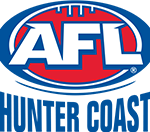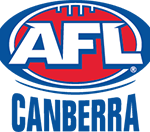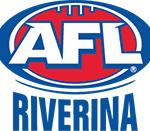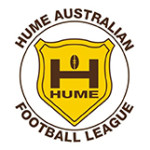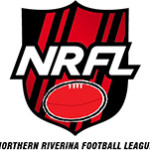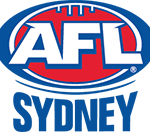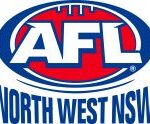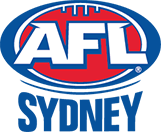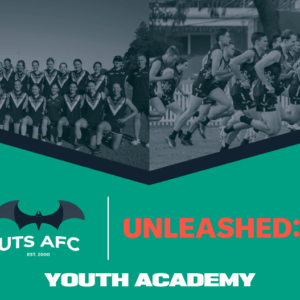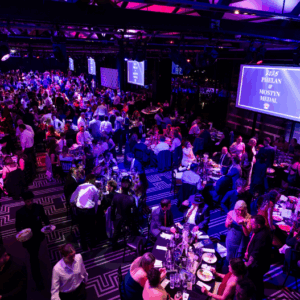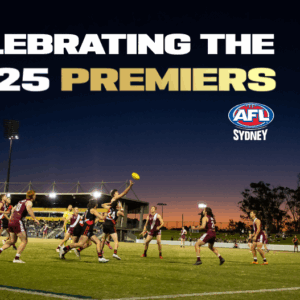Women’s Football and the Development of Cross Sport Athletes at Sydney University AFL Club

Written By David Redden
Sydney University Women’s AFL Program On the Rise
The University of Sydney’s Australian National Football Club justifiably proud of its women’s program. Its women’s program is part of a successful, professional football club that always strives for excellence at all levels.
We recently spoke with Premier Division Womens’ Coach, Jon Dyster, football convert Lucy Gilfedder and Rowing convert Rosie Beasley about being part of the Sydney Uni Women’s program.
Coach Jon Dyster explained that he has been coaching for a long time. “I got into coaching junior football when my boys needed a coach in their early Auskick days at the Newtown Swans. When the boys finished their junior years, I moved into development coaching at Sydney Uni, establishing the colts program then moving up to a development role with the Senior Men’s sides.
I was doing some development work with our Women’s players, and the opportunity came up to apply [for the Women’s Premier Division Head Coach role] and here I am”,
Like many teams across AFL Sydney, Sydney Uni has had what Dyster described as a “disrupted” pre-season. “With COVID stoppages then rain, and generally getting people back into footy after such a long break, we have had some difficulty in being able to get the team together and on the ground to be able to train.
“It has been pleasing that, during our pre-season, we have been able to focus on the girls’ football knowledge and also their strength and conditioning when we haven’t been able to get onto the ground. We are lucky that the SUSF, the sports body on campus and one of our sponsors, has great facilities that we are able to share with other clubs on campus.
Dyster advised that as part of the club’s affiliation with SUSF, the club has access to one of their strength and conditioning coaches and that, “she has been an absolute godsend during this time. We’ve been able to use the gym, cricket nets, and strength and conditioning facilities to prepare us for the season ahead.
Dyster is pleased where the women’s program is right now: “Whilst it has been a disrupted pre-season on the ground, we have had a pretty good pre-season with getting the girls on the same page. Having the girls so strong physically, such as Mac Harley, Esther Maling and Steph Gillon, senior players who have come back and been able to teach the younger girls about footy, and they’ve picked it up from there.” Dyster advised that it has been great to see 16–18-year-olds debut this season as part of the women’s program.
Jon Dyster speaks of the the women’s program’s proud traditions, winning some Premierships going back a few years. “What we have seen is a real change in the participation of our women footballers and the attitude clubs are taking towards these changes.
“We keep one eye on our proud history and our links in with the University as a high-performing club going forward.
“We want to provide more opportunities for girls on campus as well as local juniors to come along to the club and develop. We want to tap into the experience our club picked up in the NEAFL and the dominance that our men’s program has had in recent seasons.”
Dyster explained to us that ,many of the team’s players are cross-over athletes, such as Lucy Gilfedder (who played soccer) and Rosie Beasley (who was a rower). “Lucy’s hand-eye co-ordination and Rosie’s strength and endurance are tremendous assets for us, but also having played other sports at an elite level, they are able to inspire a change in attitude. That organisation and that discipline that is required in top level sport.
Jon Dyster told us that all of the players in the SUANFC program are there to learn and listen, “a refreshing change” from some of the male players that he has coached and developed.
Cross Sport Athletes Join Sydney University
Lucy Gilfedder came to Australian rules football after playing soccer for many years, particularly with the Apia-Leichhardt FC in Sydney’s Inner West.
We asked Lucy about her soccer background and her journey into playing Australian rules.
Lucy explained: “I played soccer since I could walk, then moved to Wagga and NSW state level down there. I came back to Sydney, and I was an Apia-Leichhardt Tigers girl for years and years. We moved through various grades, struggling at times, but the year that I left, we got promoted into Premier League 1, which was a big deal for us.
“That was really good to be a part of, but I felt that I had reached the end of my journey with football, I had been playing for 20 years at that stage, and I didn’t feel that I couldn’t take it any further.”
Lucy says she wants a new and exciting to challenge. “AFL was really coming onto the scene at that time and I had friends who had changed over. Libby Graham, who has now been drafted to the GWS Giants’ AFLW side, was a big influence on me.
“Also, growing up with two brothers, I was always told I was too physical for Soccer, so I made the switch to AFL, and I can’t believe I stayed in soccer for so long.
“The physicality of Australian Rules was something that drew me to the game. I feel I am a physical player and that this really suits me. I am still working on the nuances of shepherding and tackling in Australian Rules.”
Lucy also told us that she grew up in an AFL household. “Mum and Dad used to sponsor the Sydney Swans, so I was at every game with the boys, so AFL has been a big part of my life from a young age.”
When asked about the level of competition at Premier Division level, Lucy said honestly: “with the women’s game still in its infancy, the sport has a long way to go to match other sports that have been established much longer than AFL. Our game needs time to grow, we have a long way to go.
“People like Dyso (Jon Dyster) is where the interest is for me; he has come from coaching men’s football, and he’s come with the attitude that he’s going to teach the women to play with that strategy. That strategy is something that I crave in sport, being mentally challenged as opposed to just participating.”
Lucy Gilfedder says that her teammates are the best thing about playing at Sydney Uni: “the camaraderie that the girls and the club has built is phenomenal. It is really refreshing to have teammates that want to hang out after playing. It is great that we have such a positive and communal attitude and culture.”
Rosie Beasley came to Australian Rules from an elite rowing background, having represented Australia in the lightweight double sculls at the 2018 World University Games in Shanghai.
Rosie outlined her journey from Rowing into footy: “I had a friend from school who had been nagging for me years to come and play football at Sydney Uni. She had been there since 2015, and at that time I had chosen to pursue lightweight rowing, which I had done all the way through school.
“I guess I had been Rowing for 10 years with the UTS Rowing Club, and that was pretty time-consuming, training at least twice a day with the aim of representing Australia in some capacity. I was lucky to represent Australia at the World Uni Games in 2018 in Shanghai, which was a great experience. We actually placed second, which was very exciting and a career highlight to be honest.”
Rosie explained that, after her Shanghai campaign, she decided to step back from competitive Rowing to complete her degree: “Once I made that decision, I felt like I had a gap with team sport and fitness as well, so I took up my friend’s offer, finally, and joined pre-season with Sydney Uni in 2021. I got hooked, and began playing with our Division 2 team, until COVID cancelled the season half-way through. We came away from the shortened season on top of the ladder, and I won the Club best and fairest award. I was pretty chuffed with that, having done a pre-season and then a half a season of games.”
Rosie advised that she was very keen again at the start of the 2022 season to get back into it. “After a big pre-season, I have played this season in the Premier Division, which is absolutely mind-blowing that I have made it that far. Credit to the program, the coaches and the girls as well.”
As part of completing her physiotherapy degree at ACU, Rosie stated that she had a couple of seasons’ experience as a sports trainer with an AFL club that had both men’s and women’s teams: “I was able to see how clubs work and how they created equal opportunities for male and female players. I had a great opportunity to see how AFL worked, and I thought I am definitely going to give this a crack.
“I had played Sevens and 15s Rugby previously, but what drew me to AFL was that the game is a 360-degree game, you rely on your mates to communicate with you as to whether you are on or not.”
Rosie told us that playing Premier Division football is definitely a step up from playing Division 2 football:”Over the first part of the season, we have got some pretty skilful girls and we are putting in a pretty good start to our season, which has created quite a buzz around Sydney Uni.
“Playing alongside girls who have been playing the game for years has boosted the newer players and given us confidence, as well as playing against girls that have been drafted into/playing in the AFLW has been an eye-opening experience, seeing the depth of football and football talent.”
Rosie also stated that her elite Rowing background, with regular 20-30-kilometre training sessions , has clearly assisted her in the transition to our code.
When asked about what she enjoys most about playing footy at Sydney Uni, Rosie said: “There are places at our club for players of all abilities, someone who hasn’t kicked a ball before or someone wanting to make it to AFLW level. Sydney Uni is all about inclusivity, everyone gets around everyone, there’s always new people coming down, and everyone is made feel welcome. We train hard, we play hard, but there is always someone hanging around after games to socialise.”
Support and Acknowledgement
SUANFC acknowledges the ongoing support of all its partners. In particular, the commitment of naming rights partner, Growthbuilt, and major partners Scarlett Financial and the Nags Head Hotel. These partnerships allow the club to provide a high-performance environment where players can learn and grow both on and off the field.
